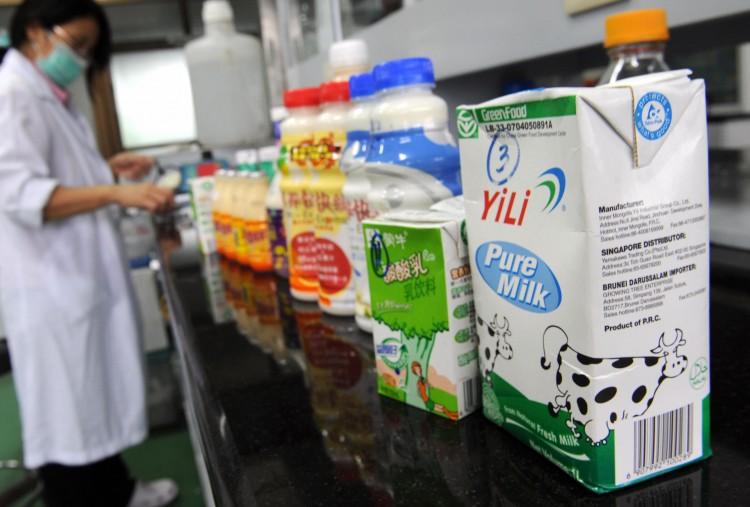Another poison milk threat has surfaced in China. This time the Chinese public seems more determined to protect itself from harm. Chinese netizens have been calling for a boycott of China’s largest milk producer, Mengniu Dairy Co., after excessive levels of a carcinogen were detected in its milk. But authorities have issued a reporting ban.
On Dec. 24, China’s General Administration of Quality Supervision, Inspection and Quarantine (GAQSIQ) released the results of liquid milk products testing carried out in October. They showed that excessive levels of aflatoxin were discovered in two batches of milk products made by Mengniu Dairy and the Fujian-based Changfu Dairy.
The official tests found one batch of a 250 ml pack of pure milk produced by Mengniu on Oct. 18 containing 1.4 times the permitted level for aflatoxin M1, and another batch made by Changfu containing 80 percent higher than the permitted level.
On Dec. 26, GAQSIQ said on its website that moldy feed was the cause of the high aflatoxin levels in the milk of the two companies.
Aflatoxin is among the most carcinogenic substances, and long-term consumption can induce liver cancer and gastrointestinal malignancies.
The Chinese regime’s Central Propaganda Department issued a general reporting ban, saying only the “authoritative” state media are allowed to report on the issue, according to a microblog message that was quickly deleted by authorities but was posted by an editor of 21 Century Business Herald.
Chinese consumers responded with outrage, especially because the GAQSIQ had withheld the test results for two months.
Dr. Yun Wuxin, a Purdue University graduate with a degree in Food Science,said on the Weibo microblog that aflatoxin testing has long been a routine test for dairy products. The fact that Mengniu milk failed this test by 140 percent indicates potentially huge manufacturing and quality control problems.
A professor, who used to inspect milk and other food products in China, told The Epoch Times on condition of anonymity that China’s standard limit for aflatoxin in milk is less than 0.5 milligram per kilogram, and if a batch of raw milk exceeded this level, it should not have been packaged and sold. The two batches of tainted milk must have not been tested during production, he said.






